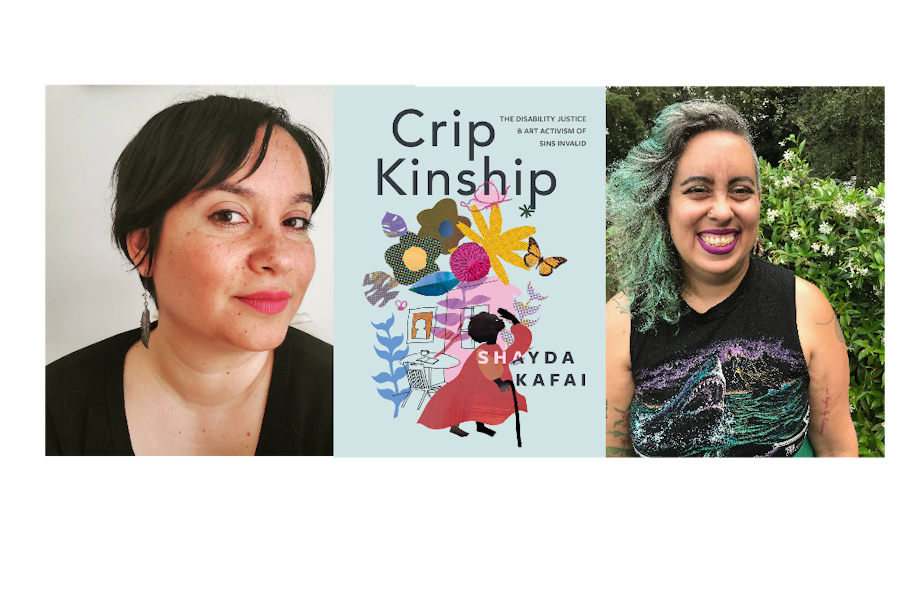Defining disability justice and celebrating ‘crip-centric liberated zones’

According to the Centers for Disease Control, one in four adults in the United States, 61 million people, live with a disability. Those include people with mobility, cognition, independent living, hearing, and vision disabilities.
People living with disabilities have had to fight for their humanity and civil rights in the face of shame, stigmatization, bias, and discrimination. They’ve done so by challenging negative attitudes and stereotypes and rallying for political and institutional change. In the 1970s, they lobbied Congress and marched on Washington, ultimately establishing protections for the first time with the Rehabilitation Act.
A more comprehensive bill, the Americans with Disabilities Act (ADA), passed in 1990. That law was intended to prohibit discrimination on the basis of disability and ensure equal treatment and equal access to employment opportunities and public accommodations.
In this episode of Speakers Forum, we hear from two activists who carry on efforts to empower people with disabilities, continuing the fight for recognition, inclusion and equal rights. Shayda Kafai is the author of Crip Kinship: The Disability Justice & Art Activism of Sins Invalid. She speaks here with author Leah Lakshmi Piepzna-Samarasinha.
Crip Kinship explores “the art-activism of Sins Invalid, a San Francisco Bay Area-based performance project, and its radical imaginings of what disabled, queer, trans, and gender-nonconforming bodyminds of color can do: how they can rewrite oppression, and how they can gift us with transformational lessons for our collective survival.”
Protective laws are one step in establishing wider freedoms, but they do not wipe away cultural assumptions and stereotypes. People with disabilities still face prejudice, physical barriers, and lack of affordable health care. They continue to fight to be seen as equals in societies that often other them.
Sponsored
“Grounded in their Disability Justice framework, Crip Kinship investigates the revolutionary survival teachings the disabled, queer of color community offers to all our bodyminds. From their focus on crip beauty and sexuality to manifesting digital kinship networks and crip-centric liberated zones, Sins Invalid empowers and moves us toward generating our collective liberation from our bodyminds outward.”
Shayda Kafai is an Assistant Professor of Gender and Sexuality Studies at California State Polytechnic University, Pomona: “As a queer, Mad, femme of color, she commits to enacting the many ways we can reclaim our bodyminds from intersecting systems of oppression. As a scholar, her writing focuses on intersectional body politics and the resilience strategies of disabled, queer of color art-activism.”
Leah Lakshmi Piepzna-Samarasinha (she/they), “a queer disabled femme writer, organizer, performance artist and educator of Burgher/Tamil Sri Lankan and Irish/Roma ascent, and the author or co-editor of nine books, including Care Work: Dreaming Disability Justice and Beyond Survival: Strategies and Stories from the Transformative Justice Movement (co-edited with Ejeris Dixon.)”
This program was presented on January 13, 2022 by the Seattle Public Library and the Elliott Bay Book Company. Elliot Bay’s Karen Maeda Allman introduced the program.
Please note: This recording contains unedited language of an adult nature.
Sponsored
Resources and links from this event
With thanks to the Seattle Public Library's Literature and Humanities Program Manager Stesha Brandon
If you have any feedback on this episode, you can email me at jobrien@kuow.org
Or fill out the feedback box below. Reach out. We're listening.




